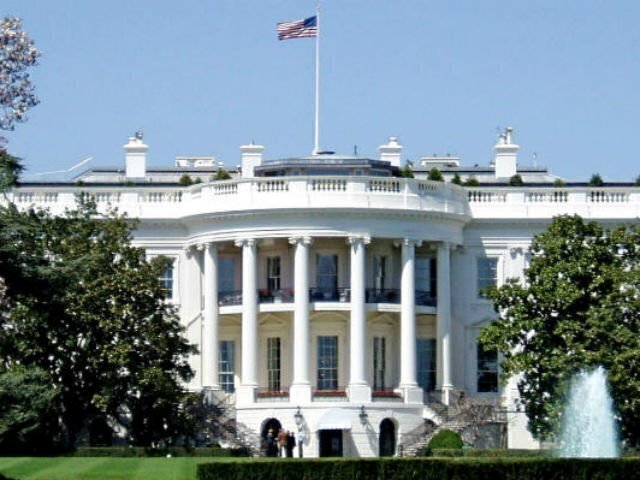With Donald Trump set to serve again as president, there has been talk about his ability to continue in office after his second term expires in four years. While the Constitution’s 22nd Amendment directly restricts Trump’s ability to run for a third term, he possibly could serve in a temporary role under some unusual scenarios.
 The 22nd Amendment’s plain language clearly states that a person twice elected as president cannot run in an election for a third term. “No person shall be elected to the office of the President more than twice,” the amendment states. “And no person who has held the office of President, or acted as President, for more than two years of a term to which some other person was elected President shall be elected to the office of the President more than once.”
The 22nd Amendment’s plain language clearly states that a person twice elected as president cannot run in an election for a third term. “No person shall be elected to the office of the President more than twice,” the amendment states. “And no person who has held the office of President, or acted as President, for more than two years of a term to which some other person was elected President shall be elected to the office of the President more than once.”
The amendment has its roots in concerns raised after President Franklin D. Roosevelt was elected to four terms in office between 1932 and 1944. Roosevelt went against an unwritten precedent set by George Washington that limited presidents to serving a maximum of two full terms, or eight years. Roosevelt cited the need for stabile leadership during the World War II era to justify his additional terms.
Congress passed the 22nd Amendment on March 21, 1947, after debates in the House and Senate. According to the Congressional Research Service, Sen. Robert Taft introduced the clause that clarified when a vice president or a person acting as president could be elected to only one additional term—if they had served for more than two years of another president’s term—or if they had served for less than two years, could be elected to two full subsequent terms. The 22nd Amendment was ratified by three-quarters of the states on Feb. 27, 1951, when Minnesota approved the amendment.
Since 1951, few challenges have arisen to 22nd Amendment’s meaning when it comes to term limits for persons elected as president. There also have been unsuccessful attempts to repeal the 22nd Amendment introduced in Congress.
Only one amendment has been repealed in American history, the 18th Amendment establishing Prohibition, a process that required another amendment, the 21st Amendment, to repeal it. Any amendment to repeal the 22nd Amendment would face practical and logistical obstacles, with 38 states needed to ratify the repeal amendment proposed by two-thirds of the House and Senate, or by conventions held by the states.
The Debate Over Presidential Service Beyond an Elected Term
One argument has been made in recent years about the ability of president, twice elected, to serve in a non-elected capacity when the office of the president is temporarily vacated; or the ability of president, twice elected, to be elected or appointed as vice president.
Under the 25th Amendment, a vice president becomes president when the office is vacant due to the president’s death, resignation, or removal from office. The vice president also can act as president when the president is unable to discharge their powers. If the vice president is unable to assume the president’s duties, or the office of vice president is vacant, the Presidential Succession Act of 1947 comes into play.
Under the Succession Act, the Speaker of the House becomes the acting president until the disabilities or inabilities of the president and vice president are resolved. The Speaker must resign their position to become the acting president. The Senate president pro tempore and then cabinet members are next in line of succession.
In a 1999 law review article, Scott E. Gant and Bruce G. Peabody raised the question that the 22nd Amendment’s language about term limits for a president was limited to their time elected to office. “We contend that the Twenty-Second Amendment proscribes only the reelection of an already twice-elected President.” They pointed to situations where a former two-term president could serve as vice president, or as acting president under the Succession Act in non-elected roles.
In 2016, Peabody noted in a separate law review article that there were arguments made by other scholars that the 12th Amendment limited vice-presidential succession to the presidency, specifically the amendment’s last sentence: “But no person constitutionally ineligible to the office of President shall be eligible to that of Vice-President of the United States.”
The Constitution Annotated from the Library of Congress has discussed several of these questions. It noted the debate over the language of the 12th and 22nd Amendments and the question of the eligibility of a two-term president to serve as vice president. “Note also that neither amendment addresses the eligibility of a former two-term President to serve as Speaker of the House or as one of the other officers who could serve as President through operation of the Succession Act.”
As for President-elect Trump, the Constitution’s Article 1, Section 2 does not list qualifications for the Speaker of the House role, and it only states that the House shall choose its own Speaker. As of today, the House has never picked a non-member as Speaker, but it could do so, subject to its own rules.
The Congressional Research service has noted that the debate over these questions arose in 1960 when President Dwight Eisenhower was ending his second term and the questions could remain hypothetical until they actually occur. It also quoted then Secretary of State Dean Acheson, who said the issues “may be more unlikely than unconstitutional.”
Scott Bomboy is the editor in chief of the National Constitution Center.







